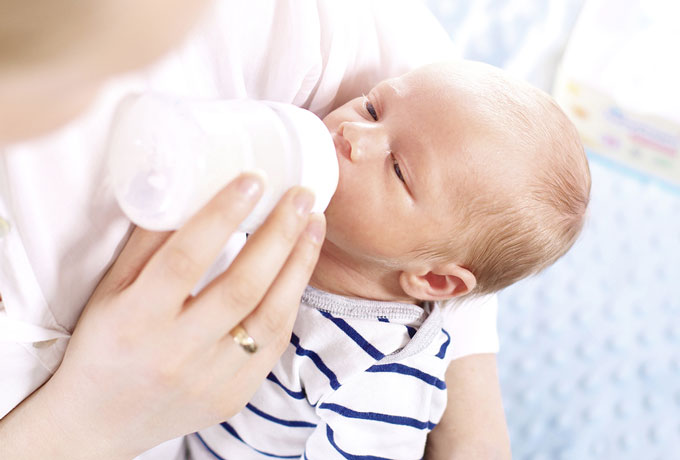Tips & Tricks that Help with Baby Hiccups

Hiccups are just one of the many strange yet adorable sounds you’ll hear from your new baby. It is easy to get nervous when your baby seems uncomfortable from hiccups but rest assured, hiccups are not only perfectly common in babies, but they even help with healthy brain development. Albeit harmless, hiccups can make your baby feel uncomfortable and may also cause them to be more fussy than usual. Although you can’t prevent your baby from getting hiccups altogether, you can take some steps to minimize the frequency of hiccups and offer support during the inevitable times when your baby does get them.
Are Baby Hiccups a Cause for Concern?
It’s pretty standard to find yourself frantically scoring Google in the early days of parenthood.
Since newborns are incredibly delicate little creatures who constantly are making new sounds and expressions, it’s easy to worry about something simple like the hiccups as a new parent. Luckily, hiccups are no real cause for concern for newborns and often don’t even cause much discomfort.
Do the hiccups make your baby fussy? That’s okay too. Because every bodily sensation is so new to a young baby, even a normal reflex like the hiccups can cause your baby to get upset at times.
How to Prevent Baby Hiccups
Although it isn’t entirely clear why babies get hiccups, there are a few theories on why babies get hiccups including eating too quickly, swallowing air when feeding, and even crying.
Ensure proper feeding technique
Extra air in the stomach can cause your baby to develop hiccups so preventing them from swallowing air during feedings is one of the most effective ways to prevent them from getting the hiccups. Babies tend to swallow excess air while feeding if they aren’t properly sealing their mouth around the nipple of the bottle or breast.
If your baby is breastfed, ensure that they are latching properly and not swallowing air while feeding. For bottle-fed babies, you’ll want to make sure that you’re holding the bottle at a 40 – 45 degree angle. Give your baby breaks while bottle feeding so they don’t swallow too much milk all at once and try to avoid letting them suck on an empty bottle once the milk is gone.
Burp well after feedings
Another effective way to help prevent your baby from getting hiccups is to burp them well after each feeding. To effectively burp your baby, hold them in a comfortable position in which you can reach their back and gently rub or pat their back repeatedly until they burp. Not all babies burp effectively so don’t be surprised if your baby doesn’t burp after every feeding.
Small frequent feedings
Hiccups can happen when babies overeat or have too much milk at one time. Be mindful of how much milk you’re giving your baby and how frequently. Babies with persistent hiccups may benefit from smaller, frequent feedings. If you’re still figuring out your baby’s hunger cues, you may want to try calming them down in other ways before offering milk if they’ve recently been fed. Try standing and bouncing them or moving them to a new location to see if that calms them when they’re fussy. Understanding why your baby is crying can help you avoid overfeeding them.
Ultimately, hiccups are a normal reflex for every human, including babies, so you’ll have to understand that your baby is going to get the hiccups at some point and that is okay.
What to Do When Your Baby Has Hiccups
When your baby inevitably gets the hiccups, sometimes the best you can do is just wait it out. Your baby’s hiccups will eventually go away and there isn’t a whole lot you can do to stop them. You can comfort your baby when they have hiccups by changing positions or offering a pacifier. Being in a more upright position tends to make babies more comfortable when they have hiccups.
Sometimes feeding a baby can actually stop the hiccups, so you can try offering them milk from the breast or a bottle if they haven’t been fed recently. If your baby is over the age of 6 months and drinks water, then you can offer them some water in a sippy cup or bottle to help with their hiccups as well.